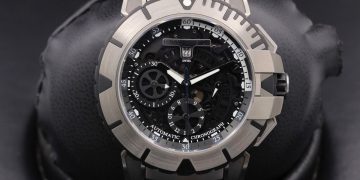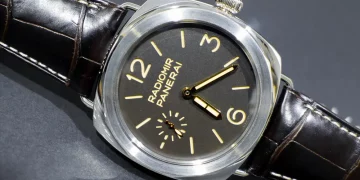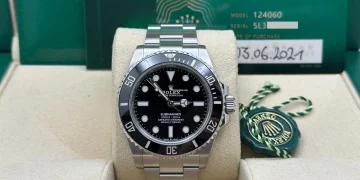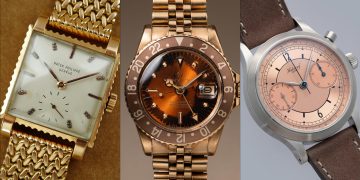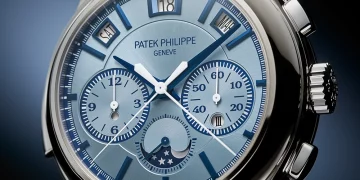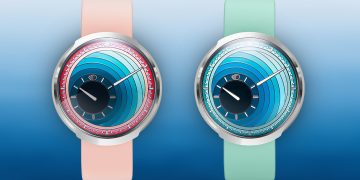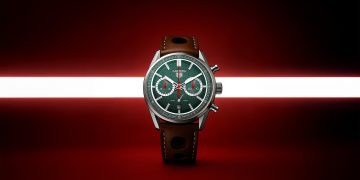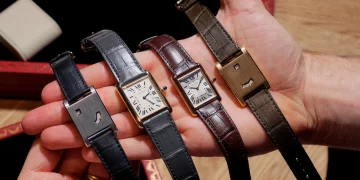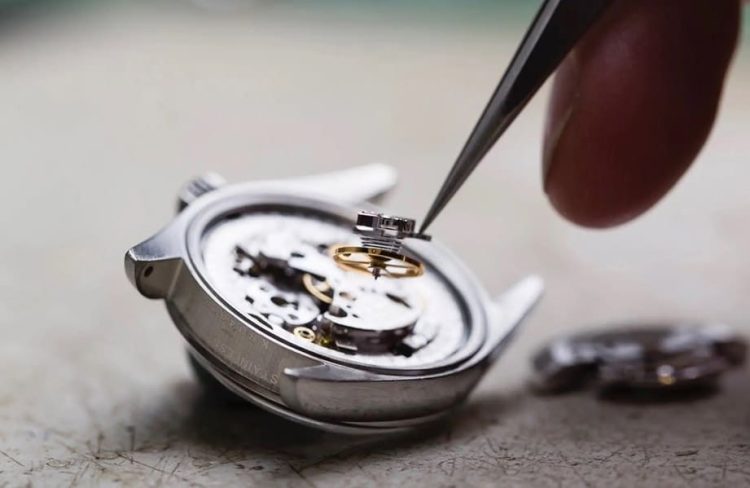Introduction
When it comes to luxury watches, precision is king. These high-end timepieces are marvels of engineering, and the way you store them can directly affect their performance. Whether you own a sophisticated mechanical piece or a sleek quartz watch, knowing how to properly store your watch is crucial to maintaining its accuracy and longevity.
This article explores the essential details you need to consider when storing your watch. We’ll go over what can go wrong if you don’t store it properly and offer practical advice on keeping your watch in top shape. From protecting the movement to avoiding environmental factors that could interfere with the mechanics, we’ll cover everything you need to know.
1. How Environmental Factors Affect Watch Accuracy
1.1 The Impact of Temperature
Watches, especially mechanical ones, are sensitive to temperature. Extreme cold can cause lubricants inside the watch to become thick and slow down the movement, while extreme heat can cause them to evaporate too quickly.
- Best Practice: Keep your watch stored in a temperature-controlled environment, ideally between 50°F and 80°F (10°C to 26°C). Avoid leaving your watch in a hot car or freezing temperatures for long periods of time.
1.2 Humidity and Moisture
Moisture can wreak havoc on a watch’s internal components. Humid environments can cause rust to form on the internal parts, damaging the movement and potentially leading to malfunction.
- Best Practice: Ensure the watch is stored in a dry environment. A watch box with a silica gel packet can help absorb moisture and prevent any damage caused by humidity.
1.3 Magnetic Fields
Magnetic fields are one of the most significant threats to mechanical watches. Magnets can interfere with the escapement mechanism, causing the watch to lose its timekeeping accuracy.
- Best Practice: Keep your watch away from magnets, electronics, and other items that emit magnetic fields. This includes smartphones, speakers, and even certain types of jewelry.
2. The Right Storage for Different Types of Watches
2.1 Storing Mechanical Watches
Mechanical watches depend on the constant movement of their movement. If a mechanical watch is stored unworn for too long, it can lose its power reserve, and the lubricants inside may dry out.
- Best Practice: Regularly wind your mechanical watch or use a watch winder to keep it running when you’re not wearing it. If you’re storing it for a long time, make sure it’s wound up properly to avoid internal wear.
2.2 Storing Quartz Watches
Quartz watches are powered by batteries, so the primary concern is ensuring the battery doesn’t leak. Over time, a battery can lose its charge and potentially leak acid, which can damage the watch’s internal parts.
- Best Practice: If you don’t plan to wear your quartz watch for an extended period, remove the battery to prevent leaks. Storing it in a cool, dry place will help prolong the life of the battery.
3. The Importance of Watch Boxes and Winders
3.1 Why You Need a Watch Box
A good watch box is essential for protecting your timepiece from dust, scratches, and potential physical damage. Many luxury watches have delicate glass faces, and keeping your watch in a box ensures it stays safe from bumps or accidental falls.
- Best Practice: Invest in a high-quality watch box with padded compartments. If you’re storing several watches, consider a box that allows each one to be securely placed in its own section to prevent contact between the watches.
3.2 The Role of Watch Winders
Watch winders are machines that keep automatic watches ticking while they’re not being worn. These winders replicate the motion of a wrist, which is crucial for keeping the watch running without needing to wind it manually.
- Best Practice: If you own multiple automatic watches, consider investing in a watch winder. Choose one that has adjustable settings to suit the specific winding needs of each watch.

4. Best Practices for Storing Your Watch
4.1 Avoid Storing Watches in High-Risk Areas
Don’t store your watch in places that could subject it to physical damage. This includes countertops, drawers with heavy objects, or any other spot where it could be knocked over.
- Best Practice: Always store your watch in a secure place, such as a drawer or watch box, where it’s not exposed to risks like dropping or scratching.
4.2 Keeping Your Watch Away from Sunlight
Prolonged exposure to sunlight can damage the dial and fade the materials used in the watch, such as leather straps and certain metals. It’s best to avoid storing your watch in areas with direct sunlight.
- Best Practice: Keep your watch in a shaded, cool area, preferably inside a watch box or safe to avoid prolonged UV exposure.
5. Common Mistakes to Avoid When Storing Watches
5.1 Not Winding Your Watch Regularly
Mechanical watches require winding to keep their movement running smoothly. Leaving them unwound for long periods can cause the internal components to dry out, leading to potential damage.
- Best Practice: If you don’t wear your mechanical watch regularly, consider using a watch winder to keep it properly wound, or wind it manually every few days.
5.2 Storing Watches in Damp or Humid Places
Humidity can cause long-term damage to your watch’s internal parts. If moisture builds up inside the watch, it can lead to rust, corrosion, or even mold.
- Best Practice: Store your watch in a dry place, and consider using desiccants like silica gel inside your watch box to absorb excess moisture.
6. Conclusion: Protecting Your Timepiece for the Long Run
Proper storage is key to maintaining the precision and longevity of your watch. Whether it’s a luxury mechanical watch or a high-tech quartz piece, every watch has unique needs when it comes to storage. By following the right steps—such as using watch boxes, watch winders, and ensuring your watch is kept in optimal environmental conditions—you can protect your timepiece from damage, preserve its accuracy, and ensure it continues to perform at its best for years to come.
Always remember, your watch is more than just a tool for telling time; it’s a delicate machine that requires care and attention to keep ticking at its finest. With the right storage and maintenance practices, you’ll be able to enjoy your timepiece’s craftsmanship and precision for decades.



